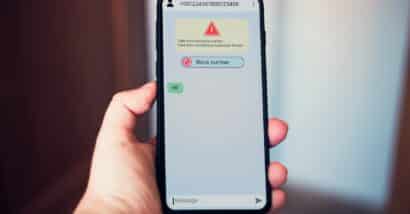 The Fair and Accurate Credit Transactions Act (FACTA), passed in 2003, includes two basic guidelines. The first guideline is not to put the entire debit card number on your receipts, and the second is to censor the expiration date.
The Fair and Accurate Credit Transactions Act (FACTA), passed in 2003, includes two basic guidelines. The first guideline is not to put the entire debit card number on your receipts, and the second is to censor the expiration date.
If you see your entire debit card number on your receipts from a certain business, you have cause for complaint and may even choose to file a FACTA lawsuit.
FACTA requires a process called truncation, or the shortening of important information, to avoid showing the entire debit card number on your receipts. Truncation must be done in a specific way to fully comply with FACTA regulations.
According to FACTA regulations, only the last five digits of a credit or debit card number may be openly displayed on a receipt. Retailers usually censor the rest of these digits with asterisks. If any digit, outside of the last five, is displayed, it breaks FACTA rules.
Since credit and debit card numbers come in four digit segments, retailers often choose to censor everything but the last four digits to ensure FACTA compliance.
Credit card debit card receipts, when following FACTA rules, should look something like this:
**** **** **** 1234
However, because five digits are allowed, it may also look like this:
**** **** ***1 2345
The following completely violates FACTA rules:
1234 **** **** ****
The other major aspect of FACTA rules is that the card’s expiration date must be completely censored. Often, companies choose to censor a card’s expiration date with asterisks, so it appears like this:
**/****
or
**/**
FACTA Compliance
Since printing debit and credit card receipts is almost entirely automated, compliance with FACTA should be extremely straightforward. All it takes is ensuring that machines are up-to-date to follow proper regulations.
It should be noted that hand-written receipts, which are very rare nowadays, are exempt from these FACTA rules.
If you notice your entire debit card number on your receipts is revealed, you may be able to file a lawsuit.
FACTA Background
FACTA rules, initially passed in 2003, are intended to protect consumers from potential identity theft and fraud. Recognizing FACTA violations can protect not only you, but hundreds or even thousands of other consumers.
If a company is using a receipt machine that has not been updated to accurately comply with FACTA rules, then any violations it prints are consistent across the rest of its customers’ receipts as well. Depending on the company, this can affect many customers, exposing them to potential fraud.
FACTA Lawsuits
If a company has printed your entire debit card number on your receipts, you may be able to file a lawsuit, which could also help other customers. You may file a complaint or lawsuit even if the exposure of your information has not led to direct harm such as identity theft or fraud.
Filing a FACTA lawsuit may lead to substantial damages as well as attorney’s fees.
A growing number of FACTA lawsuits are being filed, and many victims have already received significant rewards. Indeed, FACTA awards statutory damages of up to $1,000 per individual violation. Consumers with evidence of multiple violations can receive substantial damages.
Check for your entire debit card number on your receipts on a regular basis to determine whether or not a retailer has properly complied with FACTA rules.
In order to prove that a company violated FACTA, keep your receipts that clearly show FACTA violations.
Free FACTA Class Action Lawsuit Investigation
If you made one or more purchases and the retailer provided you with a receipt that contained more than the last five digits of your credit or debit card number or the expiration date, you may be eligible for a free class action lawsuit investigation and to pursue compensation for these FACTA violations.
ATTORNEY ADVERTISING
Top Class Actions is a Proud Member of the American Bar Association
LEGAL INFORMATION IS NOT LEGAL ADVICE
Top Class Actions Legal Statement
©2008 – 2025 Top Class Actions® LLC
Various Trademarks held by their respective owners
This website is not intended for viewing or usage by European Union citizens.














